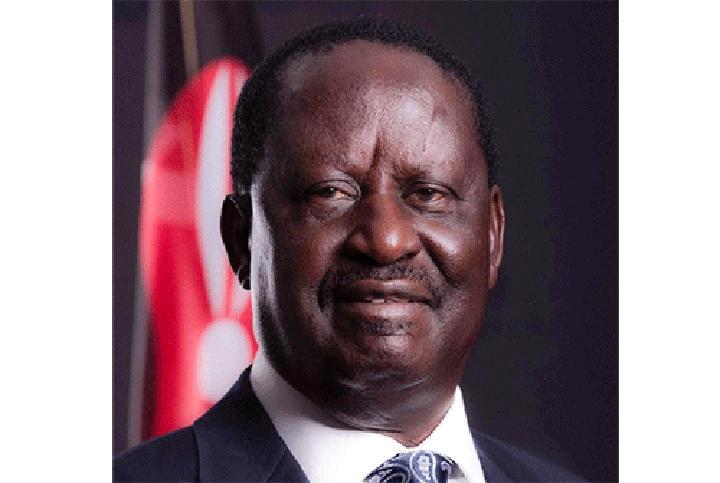Africa-Press – Namibia. Elvis Mboya
NAIROBI – As Raila Amollo Odinga is laid to rest on 19 October 2025, in Bondo, Western Kenya, near the shores of Lake Victoria, Kenya and the African continent paused to honour a towering figure whose life defined the struggle for democracy, justice and unity.
Two days earlier, Nyayo Stadium in Nairobi was filled with thousands of mourners on Friday, 17 October, and became a vibrant tapestry of grief, colour and history.
Kenyans from all walks of life, joined by African leaders and global dignitaries, gathered to bid farewell to Odinga —a liberation icon, political prisoner, opposition leader, prime minister and Pan-African statesman.
Flags at half-mast, hymns resonating through the air, and a public holiday declared in his honour underscored the depth of his impact.
Kenya’s seven days of mourning reflected a collective sorrow, from Mombasa’s bustling streets to Kisumu’s serene lakeshores.
Tributes to a continental icon
President William Ruto hailed Odinga as “the father of democracy, a fearless freedom fighter and a tireless warrior for good governance.”
Former president Uhuru Kenyatta, once a rival and later an ally, called him “a selfless politician, a steadfast champion for the people, and a true son of Kenya and Africa.”
Former U.S. president Barack Obama mourned him as “a true champion of democracy who endured decades of struggle for Kenya’s freedom, often putting the country above self and choosing reconciliation over division.”
The presence of leaders like Somalia’s President Hassan Sheikh Mohamud, Ethiopia’s President Taye Atske Selassie and former Tanzanian president Jakaya Kikwete, former Nigeria’s president Olusegun Obasanjo, alongside delegations from Uganda, Rwanda, South Sudan, Nigeria and South Africa, affirmed Odinga’s continental stature.
Condolences from the African Union, European Union and United Nations further highlighted his global influence. Namibia’s President Netumbo Nandi-Ndaitwah described him as “a distinguished Pan-Africanist who consistently championed democracy, justice and human rights,” expressing confidence that Kenyans would find unity in their loss.
From liberation to leadership
Raila’s legacy is deeply rooted in Kenya’s liberation struggle. Born on 7 January 1945, in Maseno, Kisumu County, he was the son of Jaramogi Oginga Odinga, Kenya’s liberation hero and first vice president, and Mary Ajuma Odinga. Raised in a home steeped in ideals of justice and equality, Raila was shaped by his father’s nationalist fervor, including Jaramogi’s bold call for Jomo Kenyatta’s release before independence.
Educated at Maranda High School and the Technical University of Magdeburg in East Germany, Raila trained as a mechanical engineer. His time abroad instilled values of social justice, which he brought back to Kenya in the 1970s, founding the Standard Processing Equipment Construction Company and lecturing at the University of Nairobi.
Raila’s political journey began under the repressive regime of President Daniel Arap Moi. In 1982, after a failed coup attempt, he endured nearly nine years of detention without trial—one of Kenya’s longest political imprisonments.
A brief exile in Norway followed, but neither torture nor isolation dimmed his resolve. In the 1990s, alongside his father, Kenneth Matiba, Masinde Muliro, and others, he co-founded the Forum for the Restoration of Democracy (FORD), which forced Moi’s regime to restore multiparty politics in 1991.
After Jaramogi’s death in 1994, Raila carried forward his father’s mantle, serving as member of parliament, minister for energy, minister for roads, and prime minister from 2008 to 2013 in the Grand Coalition Government with president Mwai Kibaki.
A vision for Kenya and Africa
As prime minister, Odinga drove transformative infrastructure projects and championed the 2010 constitution, which devolved power, strengthened institutions, and enshrined citizens’ rights. Known as “Baba” to millions, he became the nation’s conscience, advocating for the poor and marginalised.
His ‘Azimio la Umoja’ movement embodied his vision of peace and unity.
Despite stolen presidential elections, Odinga prioritised dialogue over conflict, earning admiration for his restraint. Beyond Kenya, Odinga’s vision extended across Africa.
As the African Union’s High Representative for Infrastructure Development, he advanced transport and energy projects vital to the African Continental Free Trade Area (AfCFTA). In 2024, while campaigning for the African Union Commission chairperson role, he engaged leaders in Botswana, South Africa, Zimbabwe and Namibia, reflecting on Africa’s journey toward self-reliance at the burial of Namibia’s President Hage Geingob.
A legacy of faith and family
Behind the political titan was a man of tradition and family. Married to Ida Odinga, a respected educationist, Odinga’s family endured arrests and trials, yet remained a beacon of resilience. His passing on 15 October 2025, marked the end of an era.
Honouring his wish, he is laid to rest within 72 hours at his Bondo home. Odinga’s life—from engineer to prisoner, opposition leader to continental reformer—mirrors Africa’s quest for justice.
He remains Kenya’s father of modern democracy, a custodian of its conscience, and a Pan-African visionary whose story of endurance and hope resonates across the continent.
-Elvis Mboya is a Kenyan-born journalist who has practised both in Namibia and Kenya, writing for prominent publications in both countries over the years.
For More News And Analysis About Namibia Follow Africa-Press






